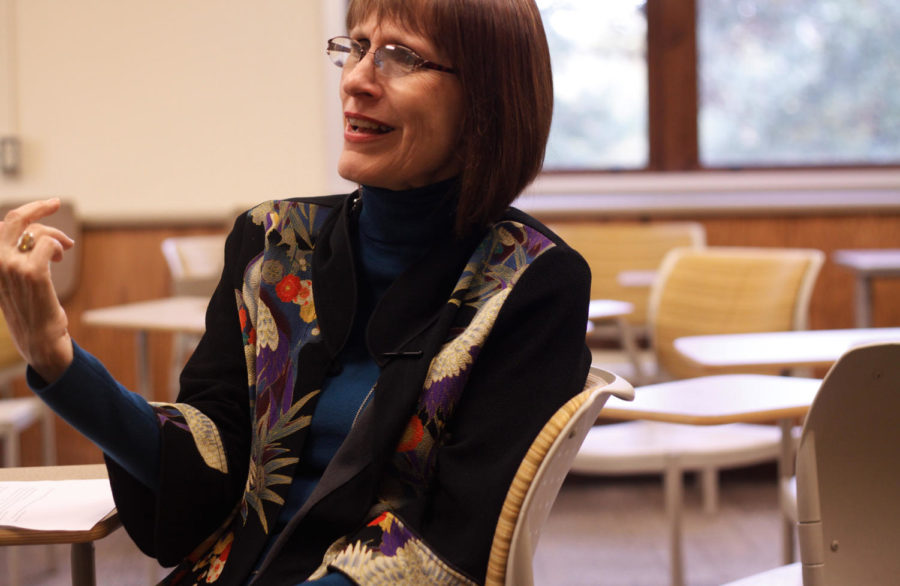Food For Thought: Wenonah Hauter connects politics, economics to U.S. food system
Wenonah Hauter comes to Iowa State to discuss her book Foodopoly on October 22, 2013.
October 23, 2013
As part of the third annual food day at Iowa State, Wenonah Hater presented how economics and politics connect behind our current food systems.
Hauter is the author of “Foodopoly: The Battle Over Future of Food and Farming in America.”
Hauter’s book and lecture focused on the investigation of economics and politics behind our current food systems.
She also places emphasis on how corporate consolidation affects farmers and the consumers who purchase agricultural products.
Hauter analyzed the corruption behind corporations and the legality issues with corporate seed companies.
“It is truly the love of money that has superseded the value of life,” said Regina Behmlander, activist for Preserve Family Farms.
Hauter said she truly believes local farmers are very important.
The lecture began with a brief history lesson, starting with the Great Depression. The Great Depression had a lot of influence on the agricultural economy in the United States, Hauter said.
Hauter then spoke on corporation power in U.S. elections, claiming that whichever business has the most money controls the government.
With the control of government, comes the control of trade, she said.
Hauter said America needs to build political power to challenge corporations like Monsanto and Wal-Mart, the junk food industry and other economics of politics that promote a range of policies that influence America’a food system.
She calls this “Food for thought” because “the democracy has been weakened.”
One of the reasons Hauter wrote “Foodopoly” is the thought that Americans need to grow our food locally, but the main reason, she said, is because she wanted to make the case that we need to get involved in politics.
One of her thoughts is that in order to change the policies our country has made, the younger generation needs to get involved with politics and stand up against corporations.
“We have to know where we have been to know where we need to go,” Hauter said.

















